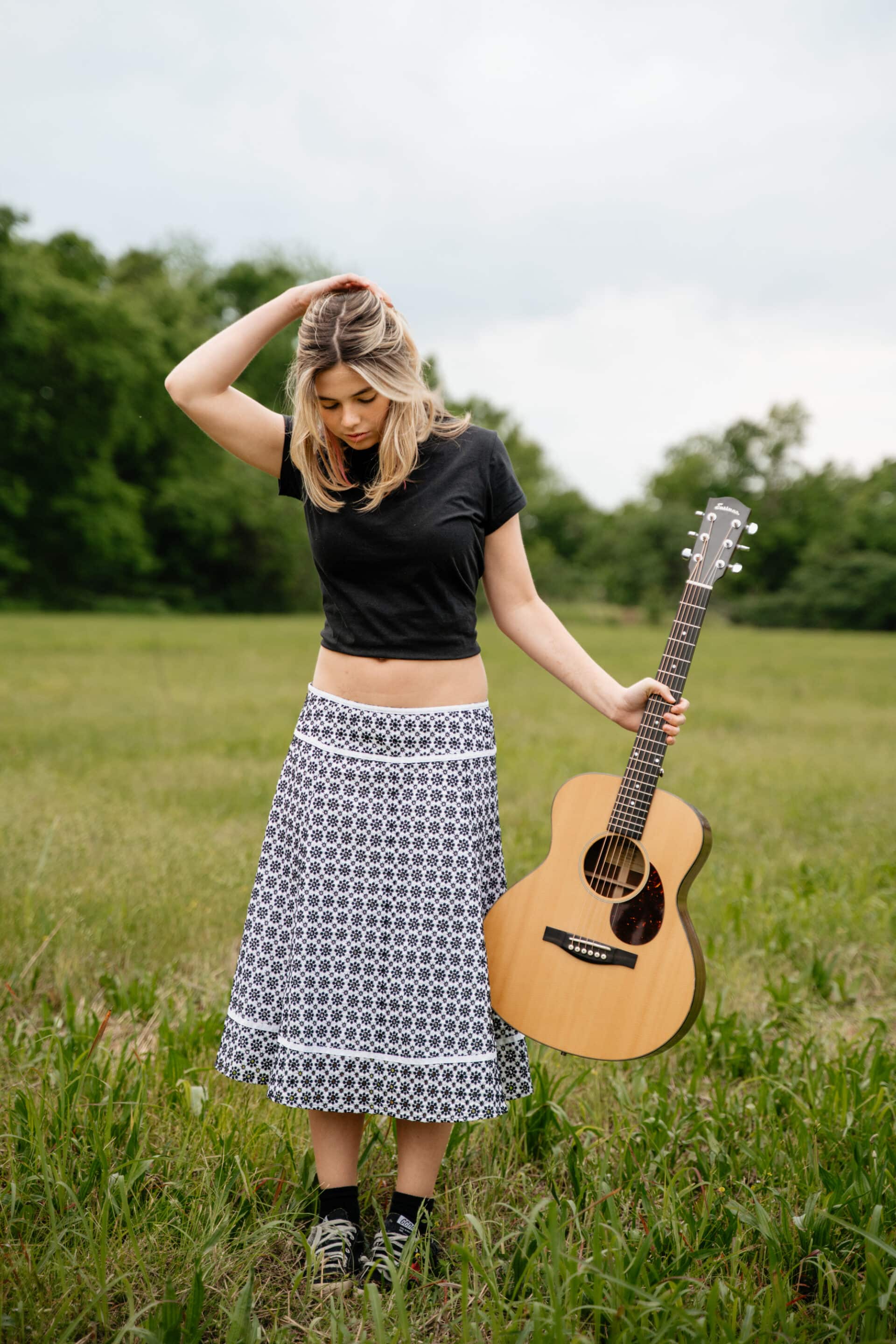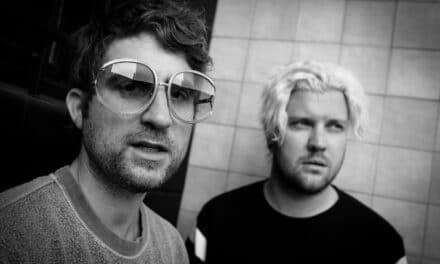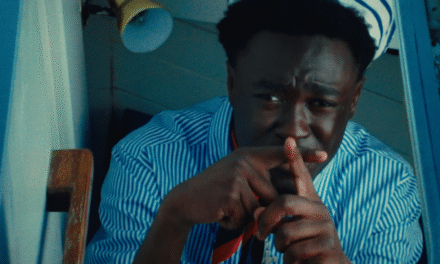At just 16, Nashville-based singer-songwriter Sloan Treacy is already asking the kind of questions that make adulthood feel like a mirage. Her sophomore EP, was any of it real?—out now—follows a trail of uncertainty, longing, and self-discovery that winds through six tracks of intimate yet polished indie-pop, led by the shimmering new single “Pavement.”
Written partly in Los Angeles and finished in Sloan’s new hometown of Nashville, the EP marks a step forward from her 2024 debut Stuck. With production by Don Miggs (Cowboy Mouth, Dolly Parton) and mixing by Grammy-nominated Mark Needham (The Killers, Imagine Dragons), Sloan’s delicate lyricism meets a newfound clarity, allowing her confessional storytelling to stretch and glow.
“Pavement,” she explains, began with a single word and spiraled into a revelation. “I originally wrote it because I really liked the word ‘pavement,’” she says, “but halfway through, I realized it was about being a people pleaser—doing whatever it takes to make others happy, even to your own detriment.” That self-awareness runs like a silver thread through the EP, catching moments of fear, hope, and resignation in its weave.
The project unravels a series of emotional snapshots. On “The Good Part,” Sloan leans into denial and longing, tracing the contours of promises she knows won’t be kept. “Optimist,” the lead single, pokes at the blurry line between hope and carelessness, lifting from a quiet acoustic sketch to a full-band spark. “Mirage,” true to its title, questions the reliability of memory and perception, while “Fever” captures the dizzying frustration of circular arguments—where words become weapons and clarity feels just out of reach. The EP closes on “The Edge,” born as a school production assignment and blossoming into a meditation on cautious desire: the thrill of wanting something shadowed by the fear of falling into old patterns.
Across was any of it real?, Sloan doesn’t shy away from vulnerability. Instead, she builds a reflective world out of fleeting thoughts and hard-won self-recognition, landing her in the lineage of artists like Lizzy McAlpine and Gracie Abrams—songwriters who turn inner monologues into communal echoes.
Outside the studio, Sloan’s world is refreshingly grounded: she bakes, runs track, and spends as much time as possible seeing live music around Franklin and Nashville. “I can’t wait to tour and share my music with as many people that resonate with it as I can,” she says. For now, fans can catch her celebrating the EP release on July 18 at Anastasia’s in Antioch, IL, with more dates to follow.
With was any of it real?, Sloan Treacy doesn’t just offer songs—she offers a journal cracked open to the light, inviting listeners to find themselves in the margins.
Let’s start with “Pavement.” You’ve said the song started with just a word. How often do lyrics come to you like that—through a single word that pulls everything else out of you?

Your EP’s called was any of it real? which feels like the kind of question you ask in the dark, not the daylight. What moment made that title feel like the right one?
You’ve got a song that was written as a school assignment (“The Edge”) and one you wrote minutes before hitting the studio (“The Good Part”). Do you ever feel like your best songs come from pressure, or from total freedom?
A lot of your lyrics feel older than sixteen — not just emotionally, but structurally too. Who taught you how to write like that, or did you figure it out by trial and heartbreak?
“Optimist” is such an interesting take on hopefulness… almost like you’re side-eyeing it. Where do you stand now on being the one who always sees the good in people?

You live in Franklin, but your EP was made between Nashville and LA. What do those two cities bring out in you creatively? Are they different versions of Sloan?
You write about people-pleasing, gaslighting, longing, denial — all stuff that feels super real, especially for teen girls. Do you ever feel pressure to filter that, or does songwriting let you say the things you can’t say out loud?
You’ve compared “Fever” to arguing with someone who talks in circles — did writing that one help you get out of that loop? Or do some songs just let you sit in it?

Your music gets compared to Gracie Abrams and Lizzy McAlpine, but what’s something you’re doing that you feel is completely your own? What space are you carving that doesn’t sound like anyone else?
What would surprise people the most about who you are when you’re not writing songs? Like… Sloan at track practice vs. Sloan writing “Mirage” in her bedroom?





